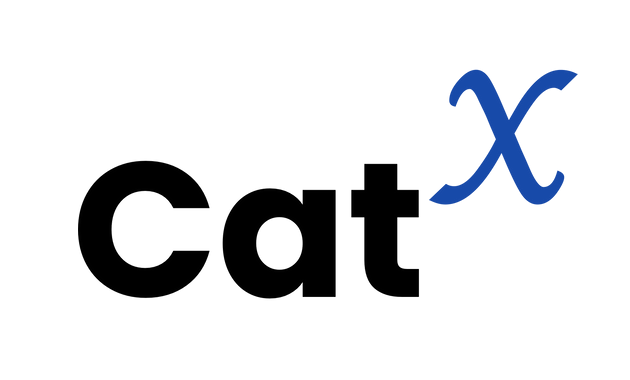Alternative reinsurance capital exchange start-up CatX raises $2.7m seed round

CatX, a digital catastrophe and parametric risk exchange start-up, has announced a successful raise of a $2.7 million seed funding round, as it looks to ramp up its mission to connect re/insurers with efficient sources of alternative reinsurance risk capital.
We reported on CatX back in June, when the young company had been accepted into the Y Combinator tech and venture accelerator program, to help it build out its capabilities and scale the development of its business model.
In announcing its seed funding today, CatX has a clear mission to share, saying it is “a platform designed to facilitate the flow of alternative capital into the insurance sector.”
Backers of the funding round include top Silicon Valley venture capital firms, as well as angel investors from proprietary trading firms and hedge funds, the company explained.
CatX aims to bridge the gap between supply and demand in the reinsurance industry, by connecting re/insurers with sources of institutional capital and capacity using its technology platform that features risk modelling and digital placement tools.
CatX believes that with its technology, “insurers can reduce their cost of capital and investors are able to unlock a universe of high return opportunities uncorrelated with traditional investments.”
Benedict Altier, co-founder and CEO of CatX, explained, “Our goal is to help make the insurance industry more robust and adaptable in the face of increasing global challenges.
“In an era where the frequency and intensity of catastrophes are on the rise, the need for adequate capital to safeguard against these risks has never been more important. By channeling alternative capital into insurance, we’re not only helping to close the growing protection gap but also unlocking a promising new asset class for investors that is uncorrelated to traditional investments like stocks and bonds.”
The company claims to already be working with 15 institutional investors, among which are North American pension funds, hedge funds and structured credit funds.
Between these initial capital providers, CatX says it can offer a way for insurance companies to access “billions in capital” by using its technology platform.
Lucas Schneider, co-founder and CTO, added, “At CatX, we focus on providing all the tools necessary for investors to understand and invest in insurance risk. Our platform features advanced risk models to generate actionable investment insights.
“A key focus for CatX is to make the whole investment process as simple as possible by digitising the workflow and utilising AI tools to shorten contract negotiations.
“Technological innovation is critical in attracting alternative capital providers that want sophisticated analytics and information tools.”
Citing the issue the insurance and reinsurance industry faces with insurability and what they term a “critical shortage in reinsurance capital”, CatX says its solution to the problem is “to introduce more alternative capital to the market.”
This can be achieved by offering “high-return investment opportunities” and providing those investors with all the tools they need to understand insurance risks.
Sanford Lincoln from HackLegacy, a VC fund who invested in the seed round, also commented, “CatX offers a new model for the modern insurance market by opening access to investors outside of traditional reinsurance players and streamlining transactions with standardised paper and state of the art insights. CatX will help greatly expand reinsurance transaction volume to create a more liquid risk market to ultimately reduce costs and expand coverage opportunities for consumers across the world.”
CatX is following in the footsteps of many others, that have attempted to use technology to make insurance risk as an asset class more understandable, accessible, and tradable.
It remains a worthwhile mission, although a challenging one to implement, given the conflicts that can emerge with parties in the value-chain, as well as the need to prove attractive as a channel to both risk bearers and risk capital owners.
The road to success in this field is littered with failures, we have covered well over 20 attempts to create digital risk exchanges, or funnels to alternative capital, in the last two decades and had a direct hand in an early effort to launch digital catastrophe derivatives exchange back in the late 1990’s.
It’s one of those challenges that, with the right strategy and focus, will see its breakthrough moment at some point in the future.
While many have failed, the market itself remains supportive of efforts to increase the efficiency of reinsurance risk transfer and to channel institutional funding to risk more effectively.
But, as soon as these efforts look set to disrupt the position and earnings of anyone else in the chain, they can face significant push-back, as we’ve witnessed in the past.
As we explained this morning in an article, “…the industry must start to look for where efficiency gains can be made. To lower the cost of risk capital, for its users. While maintaining adequate returns for the global capital providers, to ensure more capacity becomes available to help the world absorb volatility, rather than less.”
To narrow protection gaps and make insurance more affordable and ubiquitously available, the only way is to dramatically lower the sectors cost-of-capital and tapping the depth and liquidity of the capital markets in volume, is perhaps the most likely way this can be achieved at any kind of pace. Therefore, the mission remains a valid one and at some stage we will see someone succeeding here.
CatX, as the latest to attempt to travel this road, is off to a strong start, with its seed financing now secured and early investors lined up to test its risk exchange concept.
We’ll watch its journey closely.






